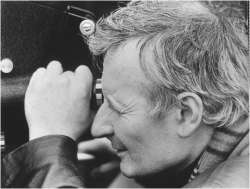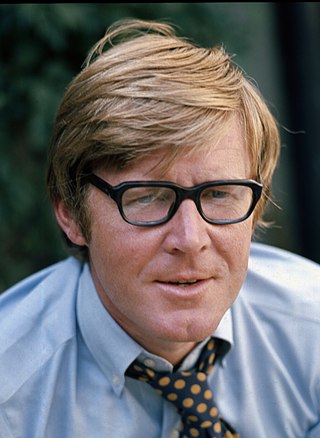Related Research Articles

Franz Kafka was a German-language novelist and writer from Prague. He is widely regarded as a major figure of 20th-century literature. His work fuses elements of realism and the fantastic. It typically features isolated protagonists facing bizarre or surrealistic predicaments and incomprehensible socio-bureaucratic powers. It has been interpreted as exploring themes of alienation, existential anxiety, guilt, and absurdity. His best known works include the novella The Metamorphosis and novels The Trial and The Castle. The term Kafkaesque has entered English to describe absurd situations like those depicted in his writing.

The Trial is a novel written by Franz Kafka in 1914 and 1915 and published posthumously on 26 April 1925. One of his best-known works, it tells the story of Josef K., a man arrested and prosecuted by a remote, inaccessible authority, with the nature of his crime revealed neither to him nor to the reader. Heavily influenced by Dostoevsky's Crime and Punishment and The Brothers Karamazov, Kafka even went so far as to call Dostoevsky a blood relative. Like Kafka's two other novels, The Castle and Amerika, The Trial was never completed, although it does include a chapter that appears to bring the story to an intentionally abrupt ending.

Lindsay Gordon Anderson was a British feature-film, theatre and documentary director, film critic, and leading-light of the Free Cinema movement and of the British New Wave. He is most widely remembered for his 1968 film if...., which won the Palme d'Or at Cannes Film Festival in 1969 and marked Malcolm McDowell's cinematic debut. He is also notable, though not a professional actor, for playing a minor role in the Academy Award-winning 1981 film Chariots of Fire. McDowell produced a 2007 documentary about his experiences with Anderson, Never Apologize.

Alan Bennett is an English actor author, playwright and screenwriter. Over his entertainment career he has received numerous awards and honours including two BAFTA Awards, four Laurence Olivier Awards, and two Tony Awards. He also earned an Academy Award nomination for his film The Madness of King George (1994). In 2005 he received the Society of London Theatre Special Award.

John James Osborne was an English playwright, screenwriter, actor, and entrepreneur, who is regarded as one of the most influential figures in post-war theatre. Born in London, he briefly worked as a journalist before starting out in theatre as a stage manager and actor. He lived in poverty for several years before his third produced play, Look Back in Anger (1956), brought him national fame.

Max Brod was a Bohemian-born Israeli author, composer, and journalist.

Sir Jonathan Wolfe Miller CBE was an English theatre and opera director, actor, author, television presenter, humourist and physician. After training in medicine and specialising in neurology in the late 1950s, he came to prominence in the early 1960s in the comedy revue Beyond the Fringe with Peter Cook, Dudley Moore and Alan Bennett.

Krapp's Last Tape is a 1958 one-act play, in English, by Samuel Beckett. With a cast of one man, it was written for Northern Irish actor Patrick Magee and first titled "Magee monologue". It was inspired by Beckett's experience of listening to Magee reading extracts from Molloy and From an Abandoned Work on the BBC Third Programme in December 1957.
Mary-Kay Wilmers, Hon. FRSL is an American editor and journalist. She was the editor of the London Review of Books from 1992 to 2021, and she remains consulting editor. She is a recipient of the Benson Medal from the Royal Society of Literature.
Keith Boak is a British film and television director, best known for his work on several popular continuing drama series. He currently resides and works in the United States.

Nora Noel Jill Bennett was a British actress.

The History Boys is a play by British playwright Alan Bennett. The play premiered at the Royal National Theatre in London's West End on 18 May 2004. Its Broadway debut was on 23 April 2006 at the Broadhurst Theatre where 185 performances were staged before it closed on 1 October 2006.

The Etcetera Theatre is a fringe venue for theatre and comedy. It was founded in 1986 by David Bidmead and is situated above The Oxford Arms pub in Camden Town, in the London Borough of Camden.

Sir John Malcolm Sabine Pasley, 5th Baronet, FBA, also known as Malcolm Pasley, was an eminent British philologist and literary scholar.

Polly Stenham is an English playwright known for her play That Face, which she wrote when she was 19 years old.

Vivian Pickles is an English actress.
A Better Class of Person (1981) is an autobiography written by dramatist John Osborne and published in 1981. Based on Osborne's childhood and early life, it ends with the first performance of Look Back in Anger at the Royal Court Theatre in 1956. The book emphasises his warm relationship with his father Thomas, and his antagonistic relationship with his mother Nellie Beatrice, which deepened to hatred after his father died when John was young. A sequel, Almost a Gentleman, was published in 1991.
David Farr is a British writer, theatrical director and Associate Director of the Royal Shakespeare Company.
Sir Michael Victor Codron is a British theatre producer, known for his productions of the early work of Harold Pinter, Christopher Hampton, David Hare, Simon Gray and Tom Stoppard. He has been honoured with a Laurence Olivier Award for Lifetime Achievement, and is a stakeholder and director of the Aldwych Theatre in the West End, London.
References
- ↑ Loxton, Rebecca First Night Review: Kafka's Dick, 2011 Oxford student production at Cherwell.org, Oxford, 30 November 2011
- ↑ Dalglish, Darren Kafka's Dick, Piccadilly Theatre (Review) at London Theatre Archive, 26 January 1999; unavailable 30 July 2020.
- ↑ Taken from Bennett, Alan. Kafka's dick. Faber and Faber, London, 1986 (limited edition produced on behalf of the Royal Court Theatre for sale only in the theatre).